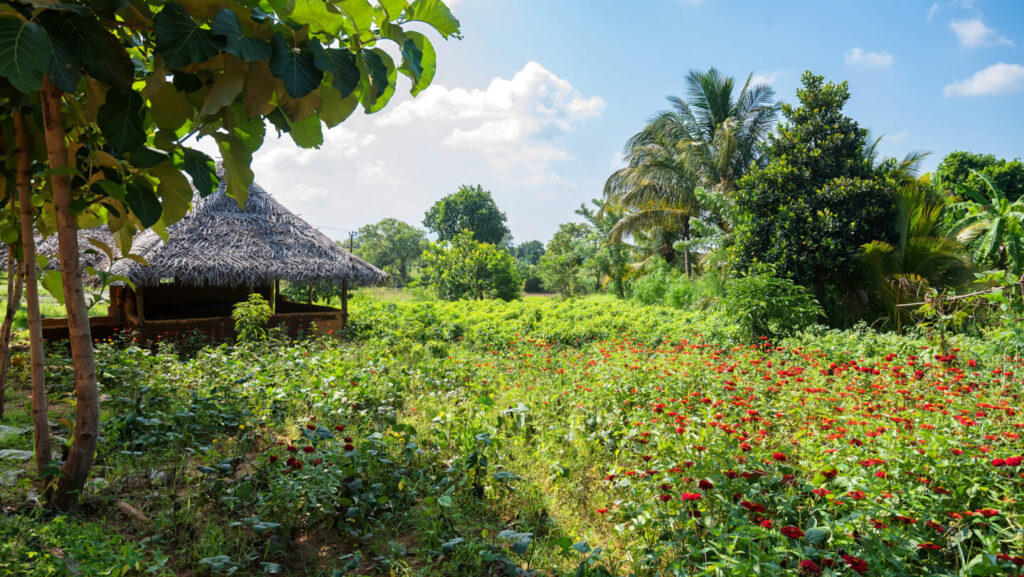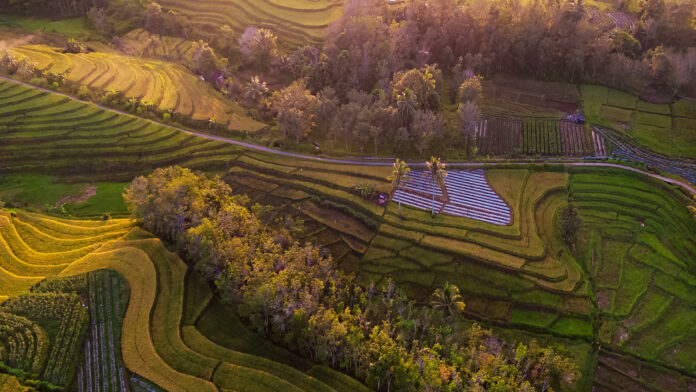By The Frontpage Journal
In the lush countryside of Sri Lanka, where rice paddies ripple like emerald seas and coconut palms sway gently in the breeze, rural communities continue to live in harmony with the land. Here, farming is more than a livelihood—it is a way of life rooted in centuries-old wisdom, sustainable practices, and a profound respect for nature. These communities offer a powerful example of how ancient knowledge and zero-waste living can create resilient, thriving environments even in the face of modern challenges.
Many farming families across regions like Anuradhapura, Matale, and Hambantota still follow traditional agricultural methods passed down through generations. These techniques emphasize crop diversity, natural pest control, and water conservation. For instance, the ancient tank irrigation systems, a marvel of hydraulic engineering, continue to nourish fields in dry zones, demonstrating a sophisticated understanding of ecological balance. Rather than relying on chemical fertilizers or monoculture, farmers plant a mix of rice, vegetables, legumes, and spices, which helps maintain soil health and reduces vulnerability to pests.
Zero-waste living is deeply integrated into this rural lifestyle. Nothing goes to waste; organic matter is composted and returned to the soil, kitchen scraps feed livestock, and even leftover crop stalks are used for fuel or animal bedding. Plastic use is minimal, often replaced by natural alternatives like banana leaves for packaging or clay pots for storage. This cyclical approach minimizes environmental impact and preserves resources for future generations.
Families themselves are central to this sustainable way of life. Knowledge is shared across ages, with elders teaching children about planting seasons, soil preparation, and natural remedies. Women often lead in preserving seed varieties and managing home gardens, while men tend to irrigation and field work. This collaborative dynamic strengthens social bonds and ensures continuity of practices.

Beyond farming, many rural households engage in traditional crafts such as pottery, weaving, and herbal medicine, complementing their income while maintaining cultural heritage. Local markets thrive as hubs where fresh produce and handmade goods are exchanged, sustaining community economies and encouraging ethical consumption.
Despite their strengths, these communities face pressures from urbanization, climate change, and economic shifts. Younger generations sometimes migrate to cities for better opportunities, and erratic weather patterns threaten crop yields. Yet, initiatives by government agencies and NGOs increasingly support sustainable agriculture through training, microfinancing, and eco-tourism development. Such programs help farmers adapt while preserving their values.
For visitors and foreign readers, rural Sri Lanka offers a glimpse into a way of living that prioritizes balance over exploitation. It challenges global assumptions about progress and shows that prosperity need not come at the cost of the environment. The lessons embedded in these communities resonate beyond agriculture; they speak to resilience, mindfulness, and stewardship.
In living with the land, Sri Lanka’s rural families demonstrate that sustainability is not a trend but a tradition. Their daily choices—from planting a seed to preparing a meal—reflect a deep understanding that humans and nature are inseparable. As the world searches for answers to environmental crises, the quiet wisdom of these communities offers guidance rooted in respect, care, and harmony.




